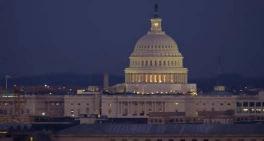Sanctuary cities could get boost from sports betting ruling
Featured Legal News
In President Donald Trump's former life as a casino owner, he might have cheered Monday's ruling from the Supreme Court that struck down a federal law that barred every state but Nevada from allowing betting on most sporting events.
But the Trump administration opposed the outcome reached by the high court at least in part because it could signal trouble in its legal fight against so-called sanctuary states and cities. Seven of the nine justices — five conservatives and two liberals — backed a robust reading of the Constitution's 10th Amendment and a limit on the federal government's power to force the states go along with Washington's wishes.
The federal anti-gambling law is unconstitutional because "it unequivocally dictates what a state legislature may and may not do," Justice Samuel Alito wrote in his majority opinion. "It's as if federal officers were installed in state legislative chambers and were armed with the authority to stop legislators from voting on any offending proposals."
There is a direct link between the court's decision in the sports betting case and the administration's effort to punish local governments that resist Trump's immigration enforcement policies, several legal commentators said.
"The court ruled definitively that the federal government can't force states to enforce federal law. In the immigration context, this means it can't require state or local officials to cooperate with federal immigration authorities," said Ilya Shapiro, a senior fellow in constitutional studies at the libertarian Cato Institute.
Omar Jadwat, director of the ACLU's immigrants' rights project, said the ruling reinforced decisions from the 1990s, including one that struck down part of a federal gun control law that required local police to determine if buyers were fit to own handguns.
"It reiterates that the real thrust of the 10th Amendment and the principles of law in this area is that the fed government can't tell the states or cities how to legislate," Jadwat said. The amendment says that powers not specifically given to the federal government belong to the states.
The gun law decision split the court's conservatives and liberals in 1997, in keeping with conservatives' complaints about the federal government's overreach and the importance of states' rights. But on Monday, Justices Stephen Breyer and Elena Kagan joined their more conservative colleagues.
The Justice Department declined to comment on the decision, but it had called on the court to uphold the federal law at issue — the department's usual practice when federal laws are challenged — by arguing that there was no constitutional violation.
In the most recent ruling about sanctuary cities, the federal appeals court in Chicago held last month that the federal government cannot withhold public safety grants from cities that won't go along with Trump's immigration enforcement policies.
In lawsuits challenging the administration, cities argue that turning local police authorities into immigration officers erodes trust with minority communities and discourages residents from reporting crime. The administration says sanctuary jurisdictions allow dangerous criminals back on the street.
The administration's efforts to crack down on places that don't comply with immigration authorities have taken several forms. Trump issued an executive order aimed at withholding federal money from recalcitrant jurisdictions. The administration also has sued California over three laws aimed at protecting immigrants in the country illegally.
Related listings
-
Kentucky high court: Death penalty IQ law unconstitutional
Featured Legal News 06/16/2018The Kentucky Supreme Court has ruled that the state's practice for determining if someone is intellectually disabled and not eligible to receive the death penalty is "unconstitutional."News outlets report that the court on Thursday deemed Kentucky's ...
-
Kansas court avoids ruling on execution for student's death
Featured Legal News 06/13/2018The Kansas Supreme Court has postponed a decision on whether the state can execute a man convicted of kidnapping, raping and strangling a 19-year-old college student.The high court on Friday upheld the capital murder conviction of Justin Eugene Thurb...
-
Court: Compliance reached in education funding case
Featured Legal News 06/11/2018A long-running court case over the adequacy of education funding in Washington state has ended, with the state Supreme Court on Thursday lifting its jurisdiction over the case and dropping daily sanctions after the Legislature funneled billions more ...

Chicago Business Fraud Attorney
Business Fraud can take many forms. In the broadest terms, a fraud occurs when someone intentionally deceives others for personal gain. Many times business fraud is harmful and recovery is necessary. Losing your personal or business’s assets can devastate your entire life. Contact Roth Law Groupto receive help on restoring your business to normalcy before you were victimized with fraud. Business fraud cases can involve multiple people and complicated schemes aimed at deceiving the public, auditors, investigators, or others. Whether you are dealing with corporate fraud or commercial fraud, we can step in and fight back to receive compensation that you deserve.
At Roth Law Group we are devoted to prosecuting and defending the legal rights of individuals and small businesses, as either plaintiff or defendant. Proving fraud can be extremely difficult. To have a successful business fraud case, one must prove that the defendant purposefully set out to defraud the victim. Fraud cases are being investigated more aggressively than ever. With increasing federal regulation and scrutiny of corporate practises, many individuals and businesses find themselves the subject of business fraud investigations.




